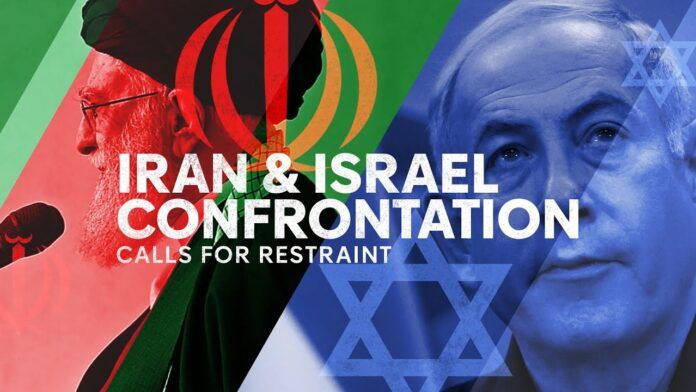As tensions in the Middle East escalate, world leaders urge a measured response to avoid further conflict
In a significant development that has the potential to escalate into a full-scale conflict between Israel and Iran, Israel’s war cabinet convened for the third consecutive day to strategize responses to Iran’s unprecedented assault over the weekend. The meeting comes amid growing international calls for moderation, highlighting fears of a broader conflict in the volatile region. The Iranian offensive, which was a direct attack from its territory—a first of its kind—targeted Israel with over 300 missiles and unmanned aerial vehicles (UAVs). This bold move by Tehran was in retaliation to a suspected Israeli strike earlier this month on its consulate in Damascus, which resulted in the deaths of several high-ranking Iranian officials. The article from the Financial Times sheds light on the tense atmosphere and the intricate balance of military and diplomatic considerations currently at play.
Financial Times
The Financial Times article provides a detailed view into the discussions and atmosphere within Israel’s top-level war cabinet. Led by Prime Minister Benjamin Netanyahu, the cabinet has been deliberating on a mix of military and diplomatic responses. The stakes are high, and the pressure from the US to avoid excessive retaliation underscores the global concern about the risks of a broader regional war. Despite these pressures, the determination within the Israeli government to send a strong message back to Iran is clear, with officials considering actions that would directly correlate to the attack’s proximity and impact.
Netanyahu, along with Israel’s military chief Herzi Halevi, seems to be navigating a complex geopolitical landscape. The cabinet’s discussion has also taken into account the strategic implications of any military action, which must be measured and not alienate key international allies. Meanwhile, the U.S. and European allies are actively working to temper Israel’s response, emphasizing the potential repercussions of an escalated military engagement with Iran.
Additionally, the Iranian attack, while direct, was largely thwarted by Israeli defences, with the military intercepting 99% of the missiles and drones, which minimized physical damage but left a significant psychological impact. The discussions in the cabinet are not just about immediate retaliation but also about the longer-term strategic positioning of Israel in the region, considering the capabilities and intentions of Iran and the supportive role of Western allies in these tense times.
The Independent
According to The Independent, the atmosphere is fraught with tension as global leaders watch closely. The narrative here focuses on the diplomatic communications involving Western leaders, including US President Joe Biden and UK Prime Minister Rishi Sunak, both of whom have held crucial discussions with Netanyahu. These conversations have revolved around urging restraint and discussing potential diplomatic manoeuvres that could de-escalate tensions.
The Independent highlights a broader perspective, noting the international diplomatic efforts to stabilize the situation and prevent it from spiralling out of control. This includes the potential repercussions on international relations and the global geopolitical balance. The coverage also touches on the internal pressures within Israel from various political and military factions, each pushing their agendas and responses to the attack.
The Guardian
The coverage by The Guardian delves into the repercussions of the Iranian attack and the subsequent international reactions. It discusses the broader implications of the conflict, including the potential impact on global politics and the immediate regional consequences if Israel decides to retaliate harshly. The Guardian’s report includes insights into the strategic military communications between Iran and Israel, highlighting the heightened state of alert on both sides.
This article also reflects on the historical context of the tensions, providing a backdrop that helps explain the current dynamics and the profound complexities involved in managing such a crisis. It discusses the delicate balance Israel must maintain in its response, considering both the domestic political landscape and the international diplomatic arena.
